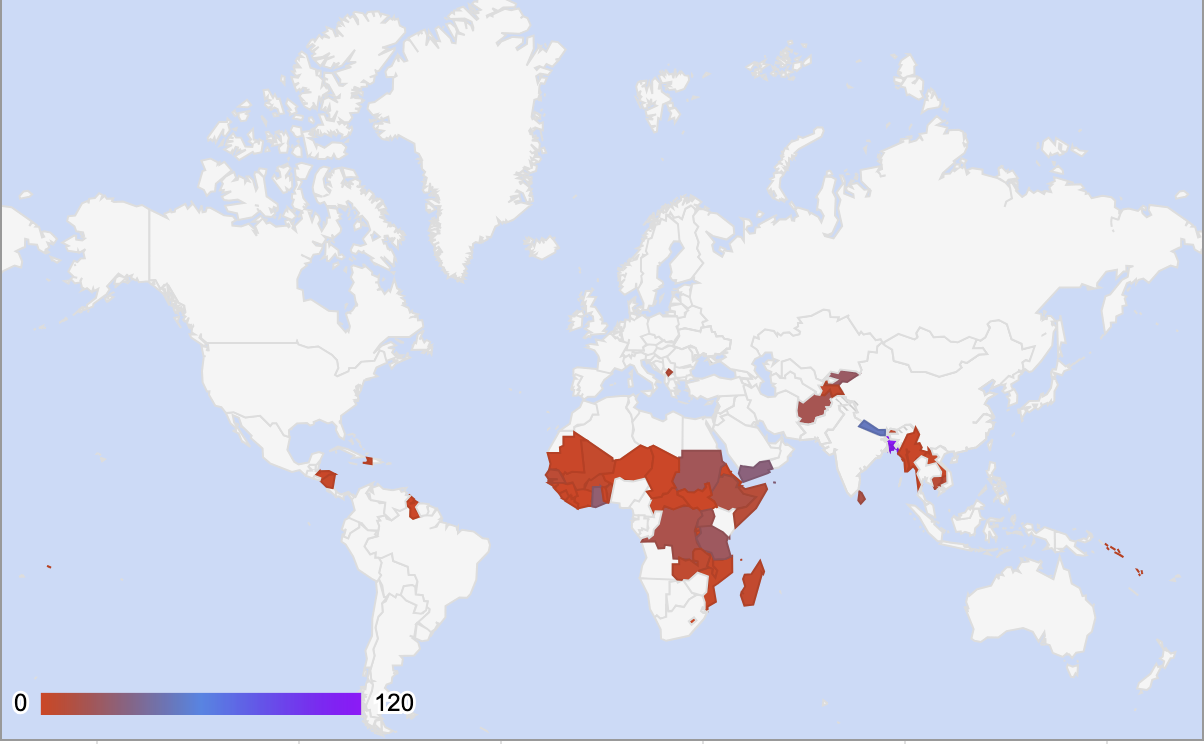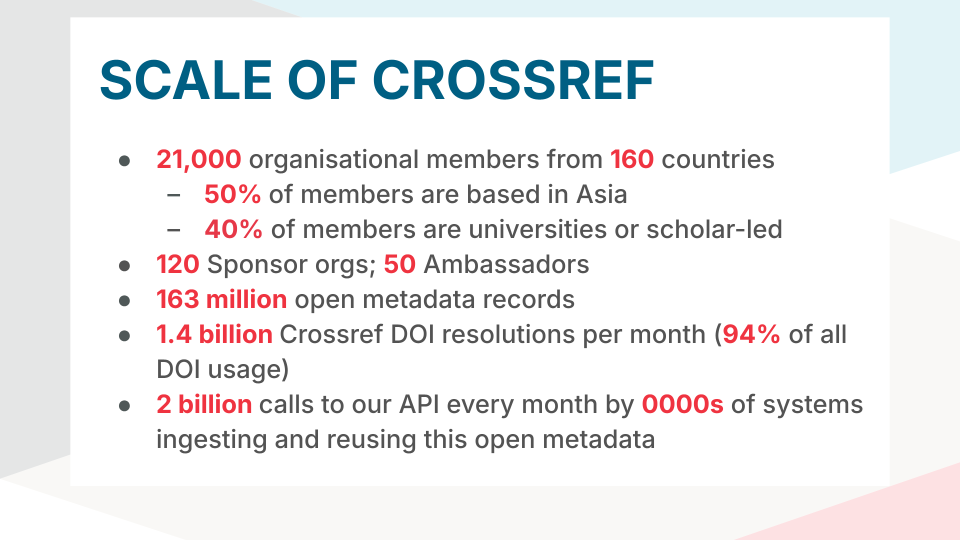This year, metadata development is one of our key priorities and we’re making a start with the release of version 5.4.0 of our input schema with some long-awaited changes. This is the first in what will be a series of metadata schema updates. What is in this update?
Crossref Blog
Every year we release metadata for the full corpus of records registered with us, which can be downloaded for free in a single compressed file. This is one way in which we fulfil our mission to make metadata freely and widely available.
Today, we’re delighted to let you know that Crossref members can now use ROR IDs to identify funders in any place where you currently use Funder IDs in your metadata.

We began our Global Equitable Membership (GEM) Program to provide greater membership equitability and accessibility to organisations in the world’s least economically advantaged countries. Eligibility for the program is based on a member’s country;
Retractions and corrections from Retraction Watch are now available in Crossref’s REST API. Back in September 2023, we announced the acquisition of the Retraction Watch database with an ongoing shared service. Since then, they have sent us regular updates, which are publicly available as a csv file.
As a provider of foundational open scholarly infrastructure, Crossref is an adopter of the Principles of Open Scholarly Infrastructure (POSI). In December 2024 we posted our updated POSI self-assessment. POSI provides an invaluable framework for transparency, accountability, susatinability and community alignment. There are 21 other POSI adopters.
https://doi.org/10.13003/axeer1ee In our previous entry, we explained that thorough evaluation is key to understanding a matching strategy’s performance. While evaluation is what allows us to assess the correctness of matching, choosing the best matching strategy is, unfortunately, not as simple as selecting the one that yields the best matches.

Looking back over 2024, we wanted to reflect on where we are in meeting our goals, and report on the progress and plans that affect you - our community of 21,000 organisational members as well as the vast number of research initiatives and scientific bodies that rely on Crossref metadata.

The Crossref2024 annual meeting gathered our community for a packed agenda of updates, demos, and lively discussions on advancing our shared goals. The day was filled with insights and energy, from practical demos of Crossref’s latest API features to community reflections on the Research Nexus initiative and the Board elections.

Background The Principles of Open Scholarly Infrastructure (POSI) provides a set of guidelines for operating open infrastructure in service to the scholarly community. It sets out 16 points to ensure that the infrastructure on which the scholarly and research communities rely is openly governed, sustainable, and replicable.
In June 2022, we wrote a blog post “Rethinking staff travel, meetings, and events” outlining our new approach to staff travel, meetings, and events with the goal of not going back to ‘normal’ after the pandemic.